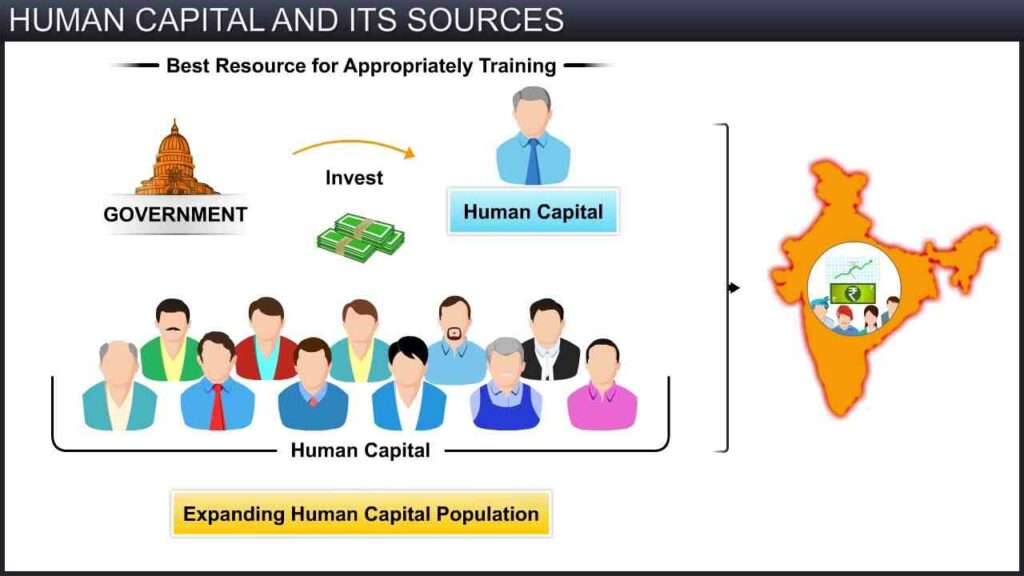
Explore 10 Key Difference between Human Capital and Human Development
Welcome to the fascinating world of human potential and progress! In this enlightening piece, we delve into the 10 difference between human capital and human development, exploring their nuances and illuminating the distinctions that shape our understanding of human advancement.
10 Difference between Human Capital and Human Development
Hello there, pupils! We’ll talk about a fascinating subject today: the 10 difference between human development and human capital. Despite having a similar sound, they are different ideas that are crucial in determining how people and societies are shaped. Let’s begin right away!
Definition:
Human capital is the collection of people’s abilities, knowledge, and skills that they can use to increase economic productivity. Human development, on the other hand, emphasizes the general welfare and advancement of people, including issues like health, education, and social welfare.
Focus:
Human capital places an emphasis on a person’s unique skills and abilities that can be measured and applied in the workplace to promote economic growth. The goal of human development, on the other hand, is to raise everyone’s quality of life by taking into account social, political, and environmental factors.
Purpose:
The main goals of human capital are economic productivity and efficiency. It sees people as resources that support economic expansion. Human development, on the other hand, emphasizes equality, social justice, and the general wellbeing of people in order to ensure that everyone has a fulfilling life.
Measurement:
Education level, professional experience, and specific skills that affect job performance are frequently used to assess human capital. On the other hand, human development measures development using metrics like life expectancy, literacy rates, access to healthcare, and general happiness.
Social vs. Economic:
Economic factors and human capital are closely related, and the two are frequently measured in monetary terms. It emphasizes boosting output and creating wealth. Human development, in contrast, gives social factors equal weight and aims to raise people’s quality of life overall, ensuring their wellbeing beyond economic considerations.
Short-term versus long-term:
The goal of human capital is to boost workforce productivity and efficiency, but it frequently concentrates on short-term gains. The goal of human development is to improve the lives of future generations while fostering sustainable progress.
Investment:
To increase individual productivity, human capital must be invested in education, training, and skill development. To create a setting that supports general wellbeing, human development requires investment in healthcare, social welfare programs, and infrastructure.
Social vs. Individual Perspective:
The individual and their contribution to the economy are the main factors in human capital. A broader view of human development acknowledges that each person’s growth and well-being are essential to the advancement of society.
Economic Development vs. Human Well-Being:
Stress is placed on economic growth and prosperity by human capital. Aiming for people’s overall happiness and well-being, human development places equal emphasis on economic advancement and the holistic development of individuals.
Interconnectedness:
Human development and human capital are closely related and frequently interact. Human development can be aided by increasing human capital by expanding opportunities for people. Human development also helps people develop their human capital by giving them the tools and encouragement they need to realize their full potential.
For understanding the various facets of personal and societal growth, it is essential to difference between human capital and human development. Human development encompasses an individual’s overall well-being, whereas human capital concentrates on knowledge and productivity. They work together to create our world, pursuing both economic development and the general well-being and fulfillment of every person.
Also Read: Explore 5 Key Difference between Kindle Edition and Paperback